Code
HCS16940
Weight
58 gm / 0.13 lbs
Size
Height
6.5cm (3") Width
2cm (1") Depth
4cm (2") Material
Copper
Availability
Available
Date Added
2019-09-14 04:11:41
Note : We used to sell this product 6 years ago so it may no longer be in our stock.
It is possible that we still have it with our suppliers but the price could be different from before.
Feel free to order. We will verify availability and inform you promptly.
It is possible that we still have it with our suppliers but the price could be different from before.
Feel free to order. We will verify availability and inform you promptly.

Safe Payment
We accept Paypal, Money Transfer, Bank Transfer
Confidence
Protection covers your purchase and personal data.
Worldwide Delivery
We ship Worldwide, except Russia.Shipping cost US$25.2 for upto 0.5 kgs

Hotline
Talk to help line for your question on 9841267335About Elector Gold Plating
The Statue Of Uma Mahesvara, Ardhanarishvara, [full Gold Plated] has been crafted using the ceramic mold casting process, a modern approach that provides an alternative to traditional methods such as the lost-wax system or rubber molding. Also referred to as ceramic molding, this technique involves the creation of a ceramic mold to cast the statue. The process begins by making a precise and detailed wax model of the desired sculpture. The wax model is then coated with layers of ceramic material, creating a sturdy mold. Once the mold is complete, it is fired in a kiln, causing the wax to melt and escape, leaving behind a cavity that perfectly replicates the original sculpture. Molten metal is then poured into the mold, allowing it to fill the cavity and take on the desired form. Once cooled and solidified, the ceramic mold is carefully broken away, revealing the final metal statue. Read More . . .
The Statue Of Uma Mahesvara, Ardhanarishvara, [full Gold Plated] has been crafted using the ceramic mold casting process, a modern approach that provides an alternative to traditional methods such as the lost-wax system or rubber molding. Also referred to as ceramic molding, this technique involves the creation of a ceramic mold to cast the statue. The process begins by making a precise and detailed wax model of the desired sculpture. The wax model is then coated with layers of ceramic material, creating a sturdy mold. Once the mold is complete, it is fired in a kiln, causing the wax to melt and escape, leaving behind a cavity that perfectly replicates the original sculpture. Molten metal is then poured into the mold, allowing it to fill the cavity and take on the desired form. Once cooled and solidified, the ceramic mold is carefully broken away, revealing the final metal statue. Read More . . .
Ceramic Molding System
The Statue Of Uma Mahesvara, Ardhanarishvara, [full Gold Plated] has been crafted using the Ceramic mold casting process, a modern approach that provides an alternative to traditional methods such as the lost-wax system or rubber molding. Also referred to as ceramic molding, this technique involves the creation of a ceramic mold to cast the statue. The process begins by making a precise and detailed wax model of the desired sculpture. The wax model is then coated with layers of ceramic material, creating a sturdy mold. Once the mold is complete, it is fired in a kiln, causing the wax to melt and escape, leaving behind a cavity that perfectly replicates the original sculpture. Molten metal is then poured into the mold, allowing it to fill the cavity and take on the desired form. Once cooled and solidified, the ceramic mold is carefully broken away, revealing the final metal statue. Read More . . .
The Statue Of Uma Mahesvara, Ardhanarishvara, [full Gold Plated] has been crafted using the Ceramic mold casting process, a modern approach that provides an alternative to traditional methods such as the lost-wax system or rubber molding. Also referred to as ceramic molding, this technique involves the creation of a ceramic mold to cast the statue. The process begins by making a precise and detailed wax model of the desired sculpture. The wax model is then coated with layers of ceramic material, creating a sturdy mold. Once the mold is complete, it is fired in a kiln, causing the wax to melt and escape, leaving behind a cavity that perfectly replicates the original sculpture. Molten metal is then poured into the mold, allowing it to fill the cavity and take on the desired form. Once cooled and solidified, the ceramic mold is carefully broken away, revealing the final metal statue. Read More . . .
Brief Introduction :
The Ardhanarishvara (Sanskrit: अर्धनारीश्वर, Ardhanārīśwara) is a composite form of the Hindu deities Shiva and Parvati (the latter being known as Devi, Shakti and Uma). Ardhanarishvara is depicted as half-male and half-female, equally split down the middle. The right half is usually the male Shiva, illustrating his traditional attributes.
The earliest Ardhanarishvara images are dated to the Kushan period, starting from the first century CE. Its iconography evolved and was perfected in the Gupta era. The Puranas and various iconographic treatises write about the mythology and iconography of Ardhanarishvara. Ardhanarishvara remains a popular iconographic form found in most Shiva temples throughout India, though very few temples are dedicated to this deity.
Ardhanarishvara represents the synthesis of masculine and feminine energies of the universe (Purusha and Prakriti) and illustrates how Shakti, the female principle of God, is inseparable from (or the same as, according to some interpretations) Shiva, the male principle of God, and vice versa. The union of these principles is exalted as the root and womb of all creation. Another view is that Ardhanarishvara is a symbol of Shiva's all-pervasive nature.
Ardhanarishvara represents the synthesis of masculine and feminine energies of the universe (Purusha and Prakriti) and illustrates how Shakti, the female principle of God, is inseparable from (or the same as, according to some interpretations) Shiva, the male principle of God, and vice versa. The union of these principles is exalted as the root and womb of all creation. Another view is that Ardhanarishvara is a symbol of Shiva's all-pervasive nature.


![Statue Of Uma Mahesvara, Ardhanarishvara, [full Gold Plated]](https://handicraftseller.com/uploads/pics/product/thumb/2019/09/16940.jpg)
![Statue Of Uma Mahesvara, Ardhanarishvara, [full Gold Plated]](https://handicraftseller.com/uploads/pics/product/thumb/2019/09/16940_0.jpg)
![Statue Of Uma Mahesvara, Ardhanarishvara, [full Gold Plated]](https://handicraftseller.com/uploads/pics/product/thumb/2019/09/16940_1.jpg)
![Statue Of Uma Mahesvara, Ardhanarishvara, [full Gold Plated]](https://handicraftseller.com/uploads/pics/product/thumb/2019/09/16940_2.jpg)
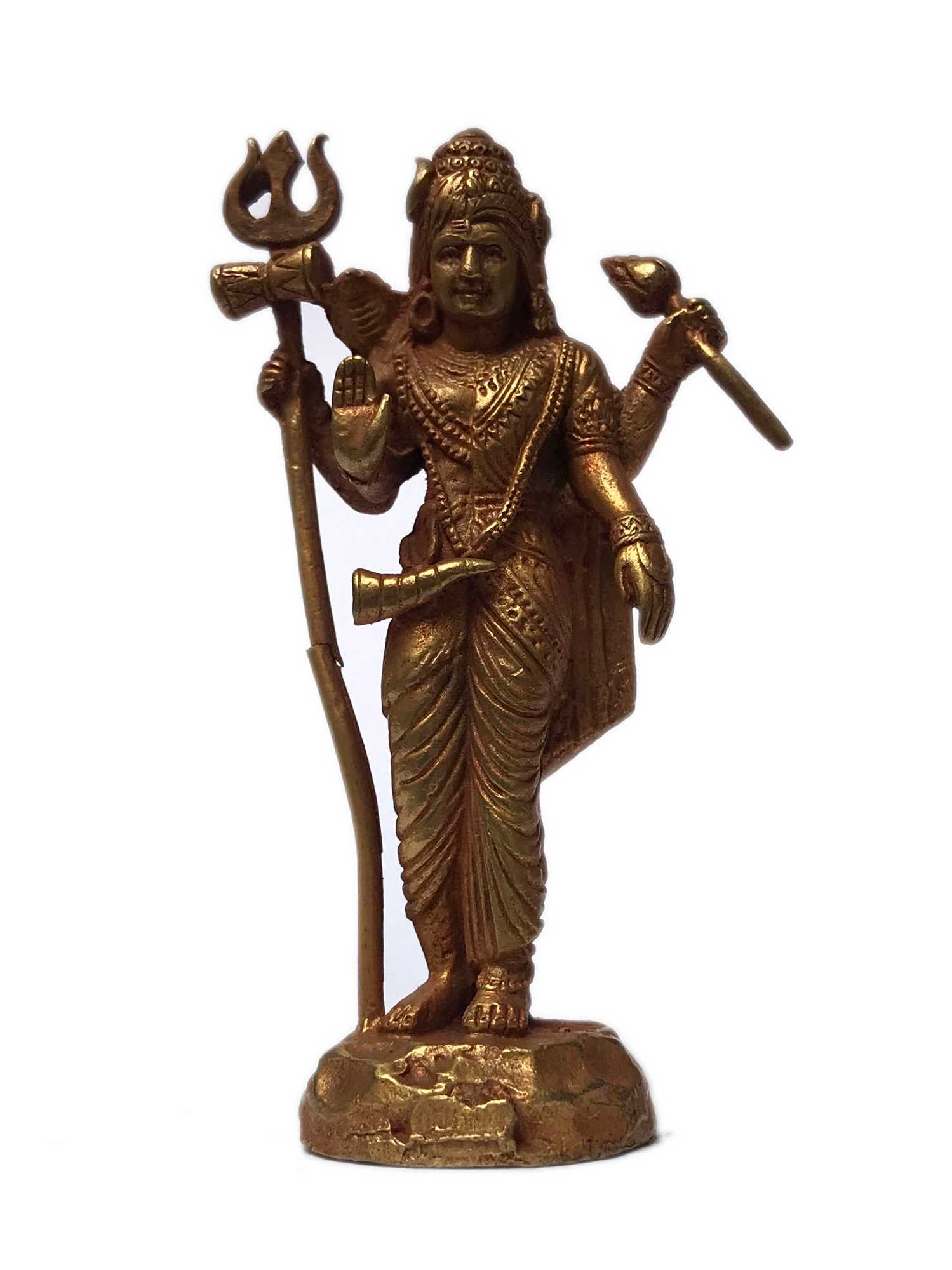
 of Niratama Yogini
of Niratama Yogini 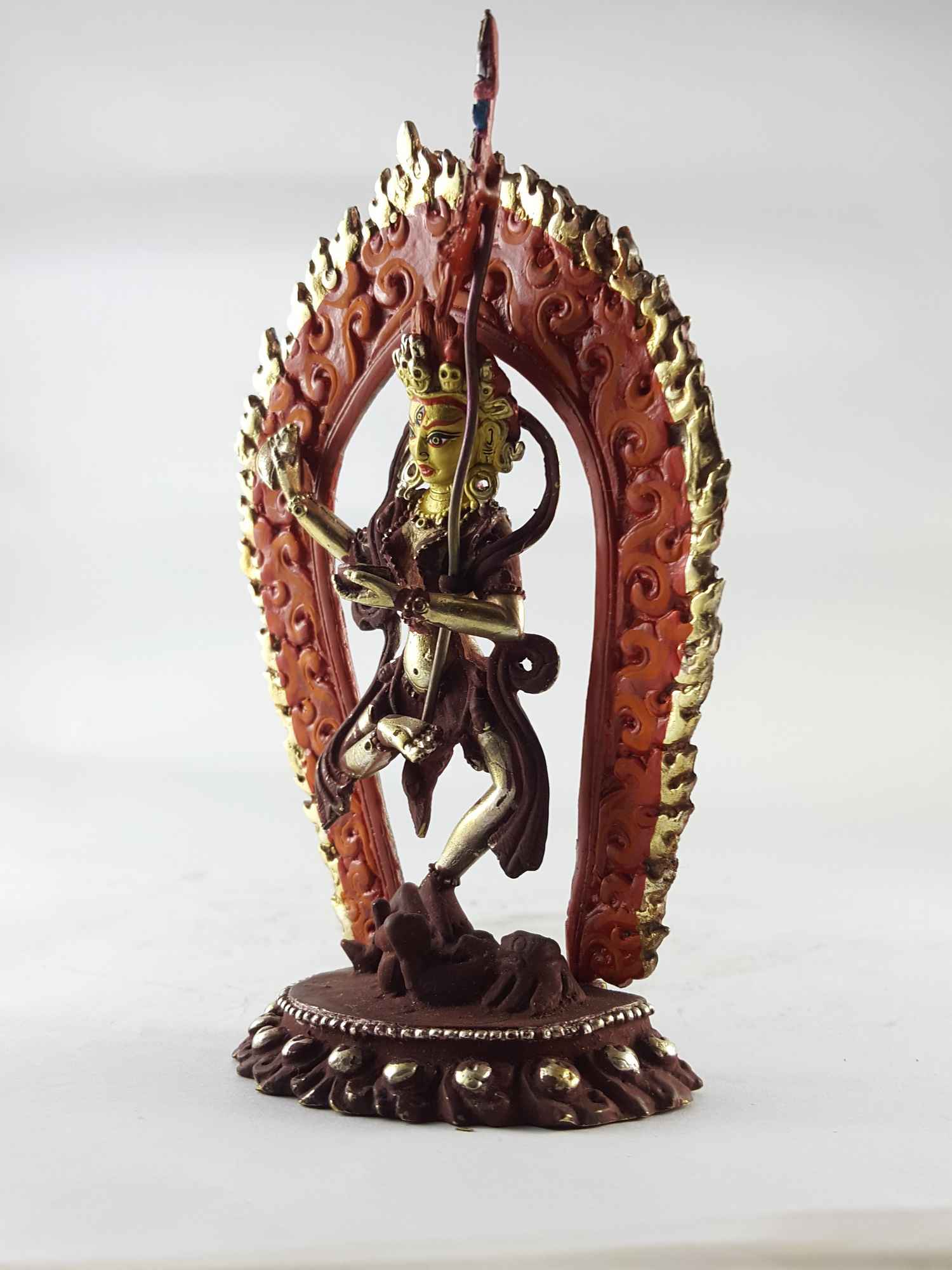 of Niratama Yogini
of Niratama Yogini  of Maitreya Buddha
of Maitreya Buddha 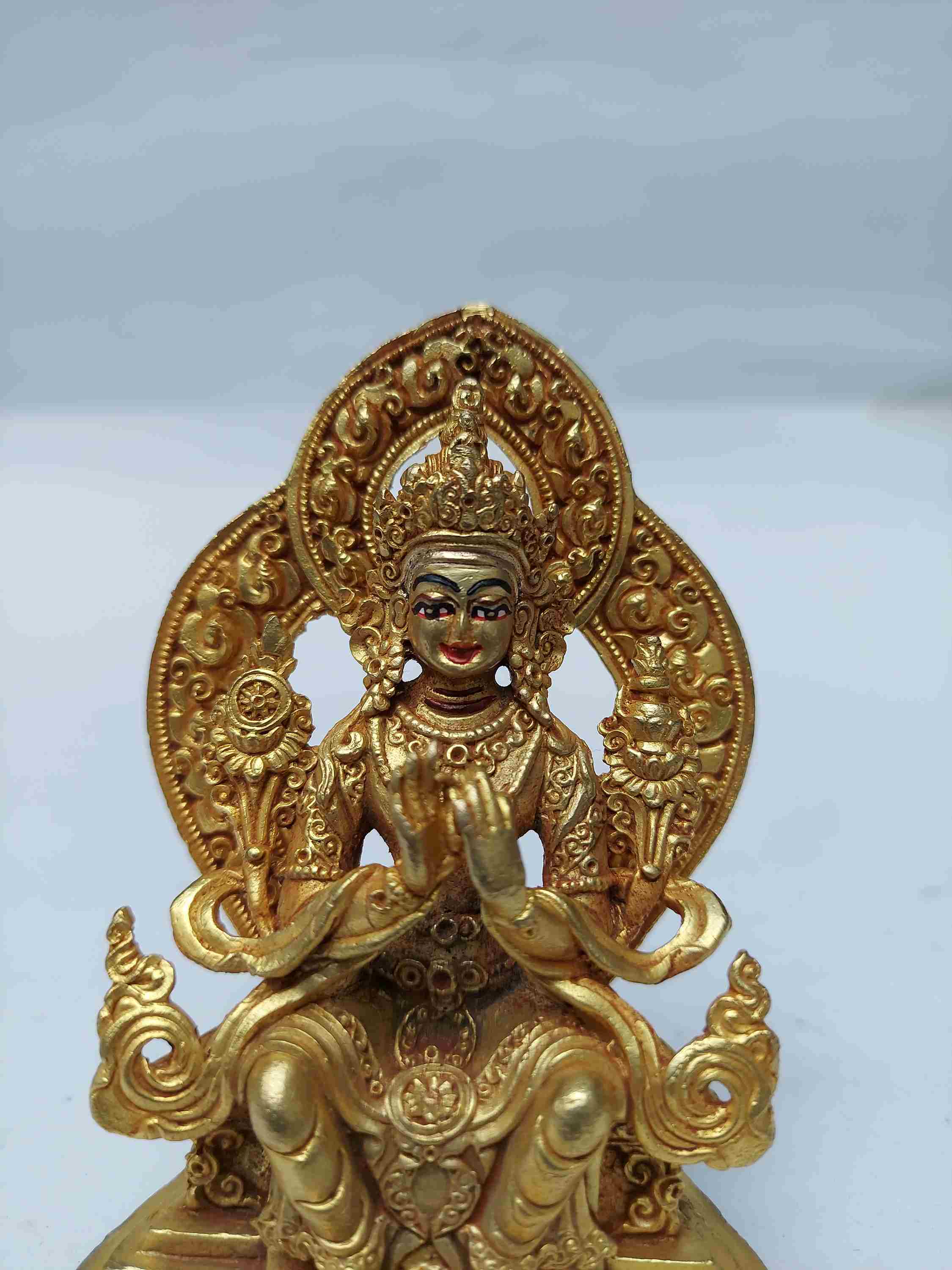 of Maitreya Buddha
of Maitreya Buddha  Padmasambhava, Hindu Handmade Statue,
Padmasambhava, Hindu Handmade Statue,  Padmasambhava, Hindu Handmade Statue,
Padmasambhava, Hindu Handmade Statue, 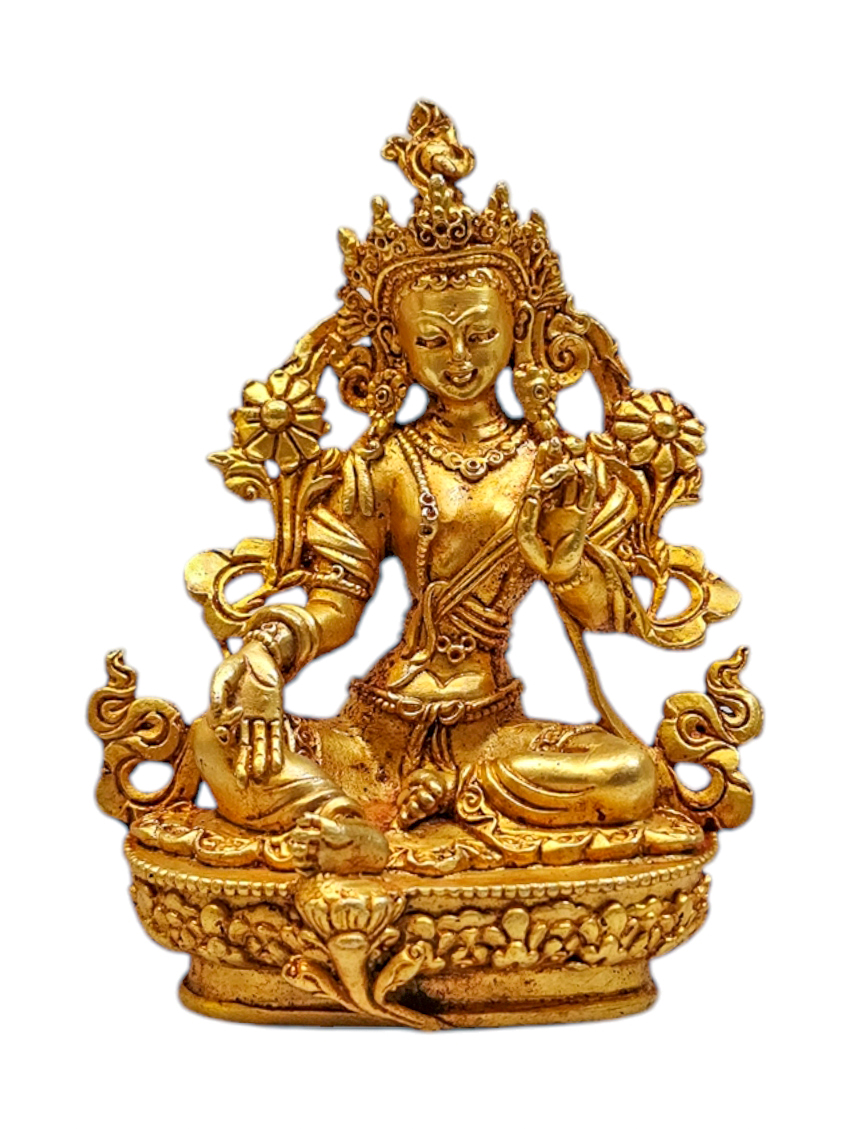 Green Tara, Buddhist Miniature Statue,
Green Tara, Buddhist Miniature Statue, 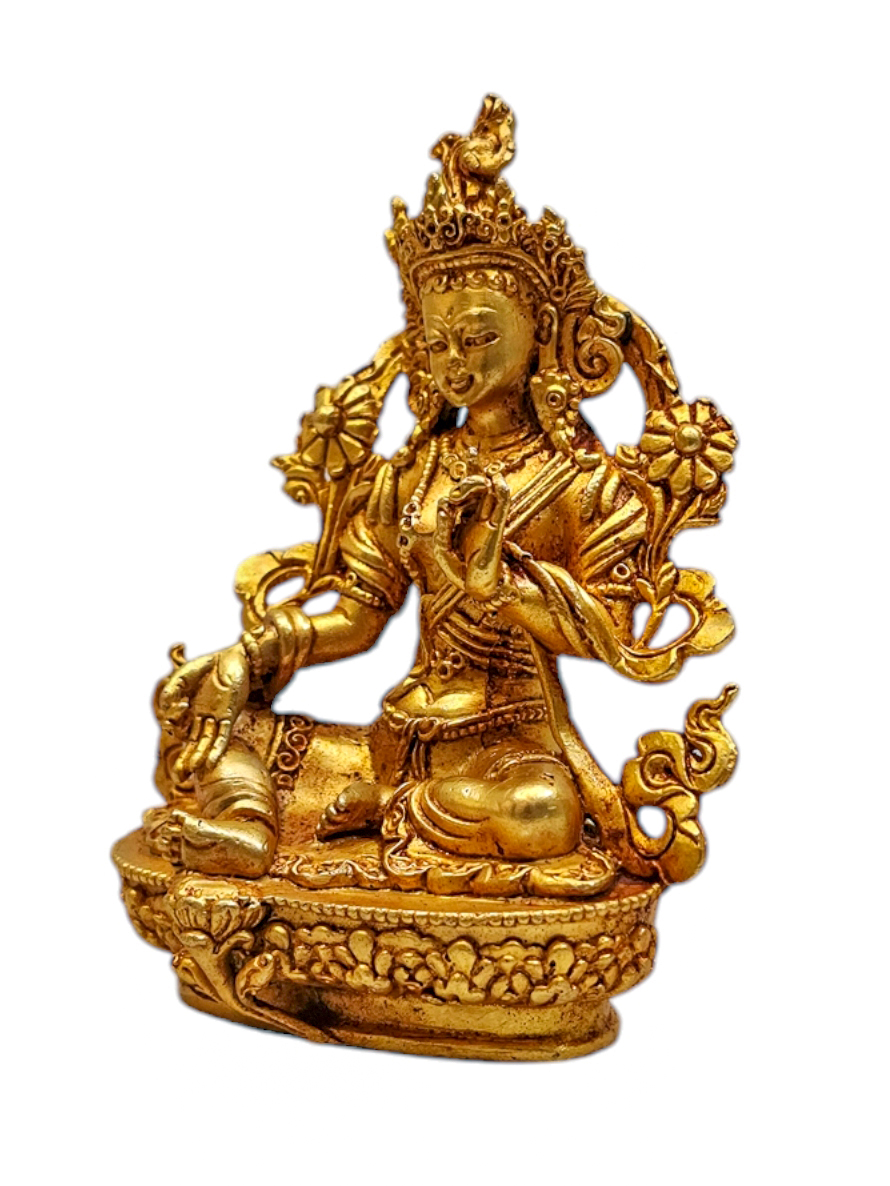 Green Tara, Buddhist Miniature Statue,
Green Tara, Buddhist Miniature Statue,  of Vajrasattva On A Thrown
of Vajrasattva On A Thrown 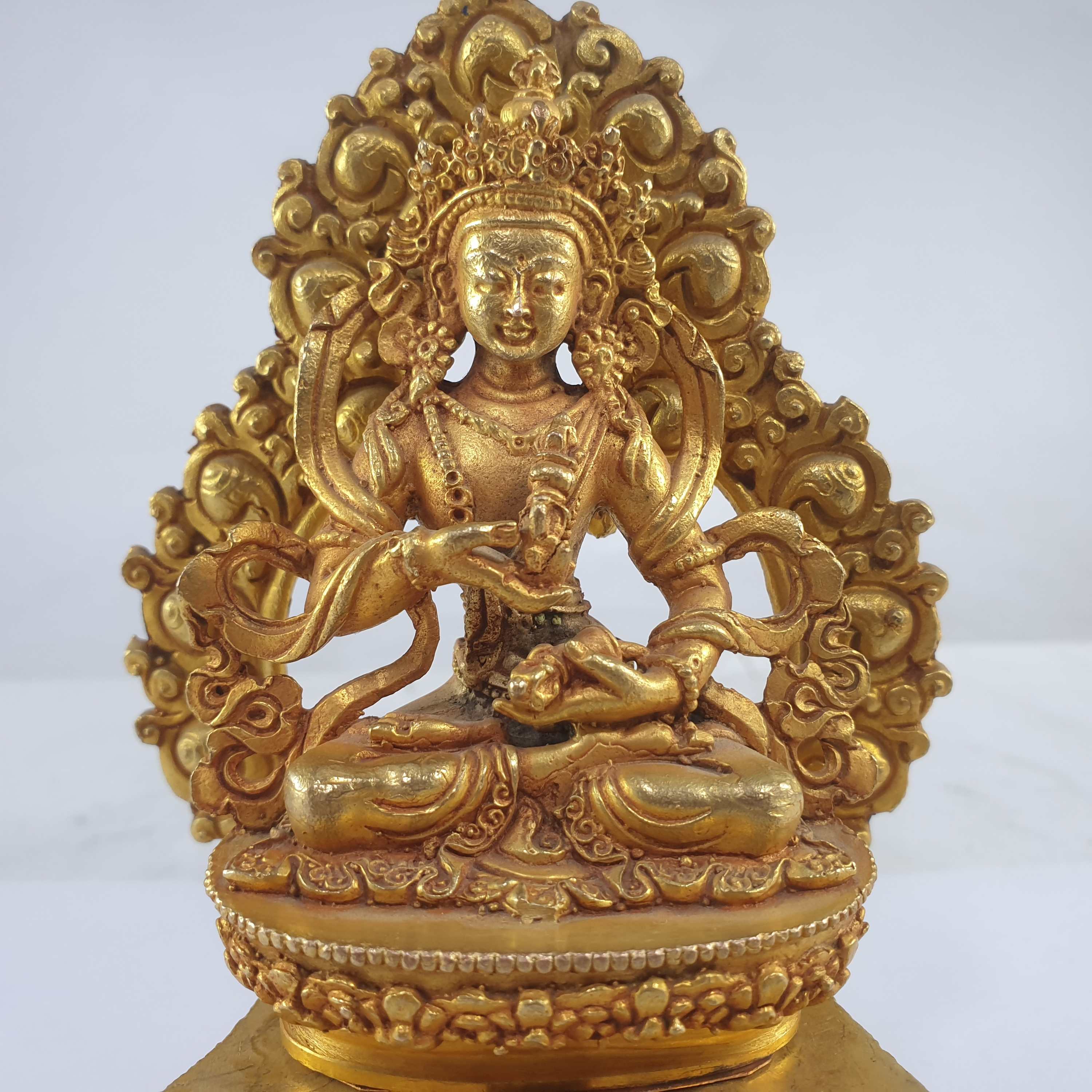 of Vajrasattva On A Thrown
of Vajrasattva On A Thrown 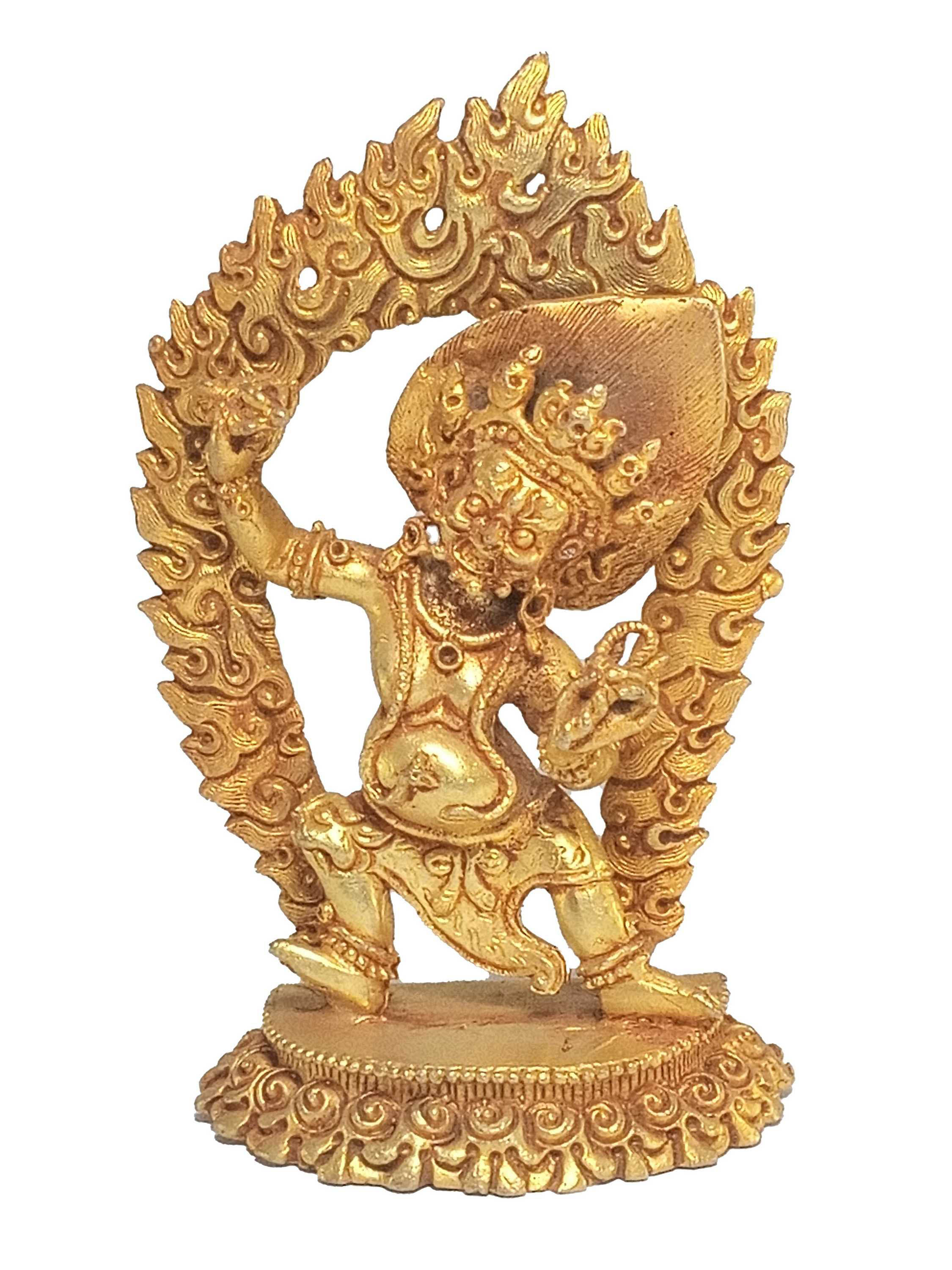 of Vajrapani
of Vajrapani 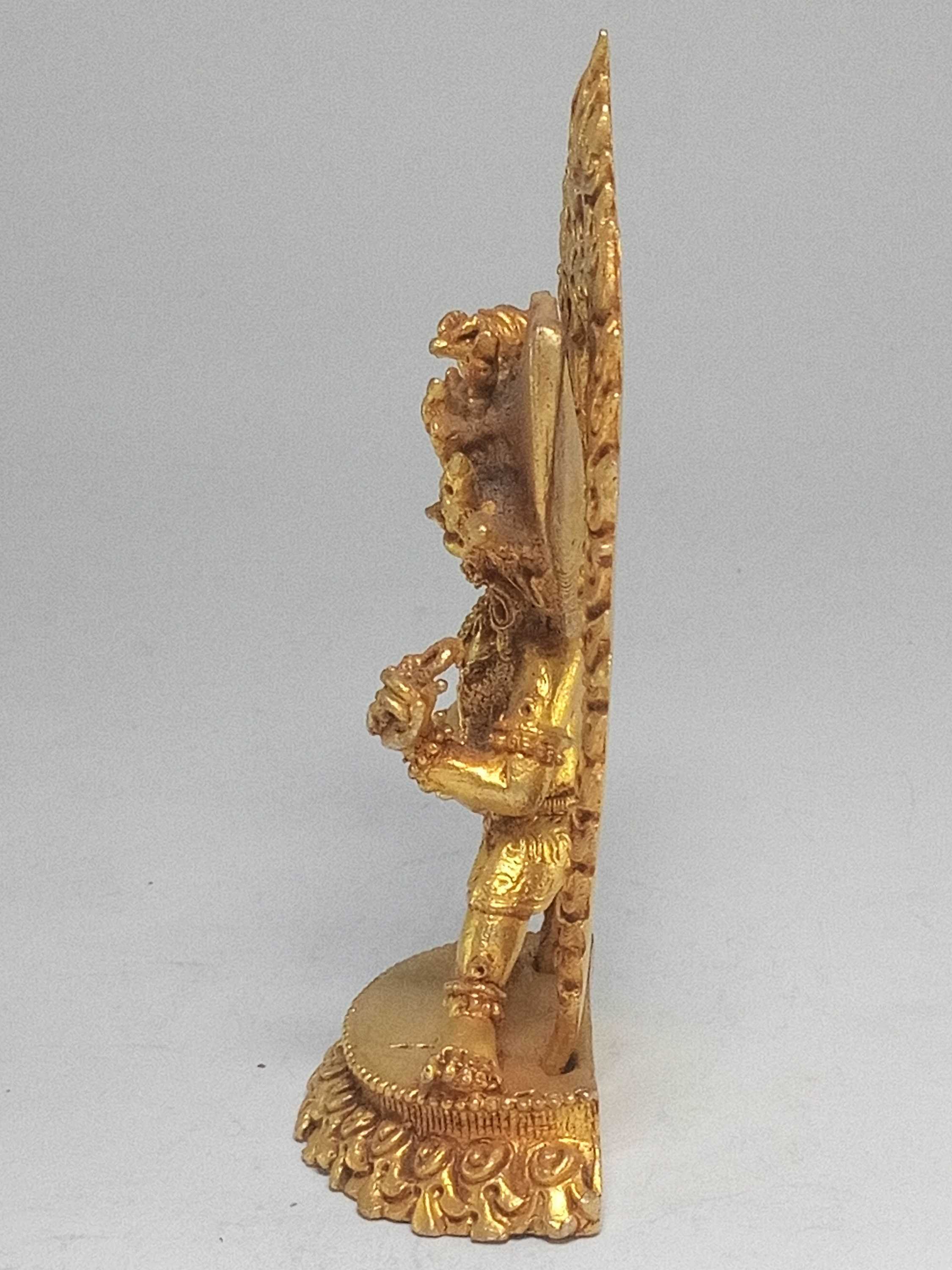 of Vajrapani
of Vajrapani 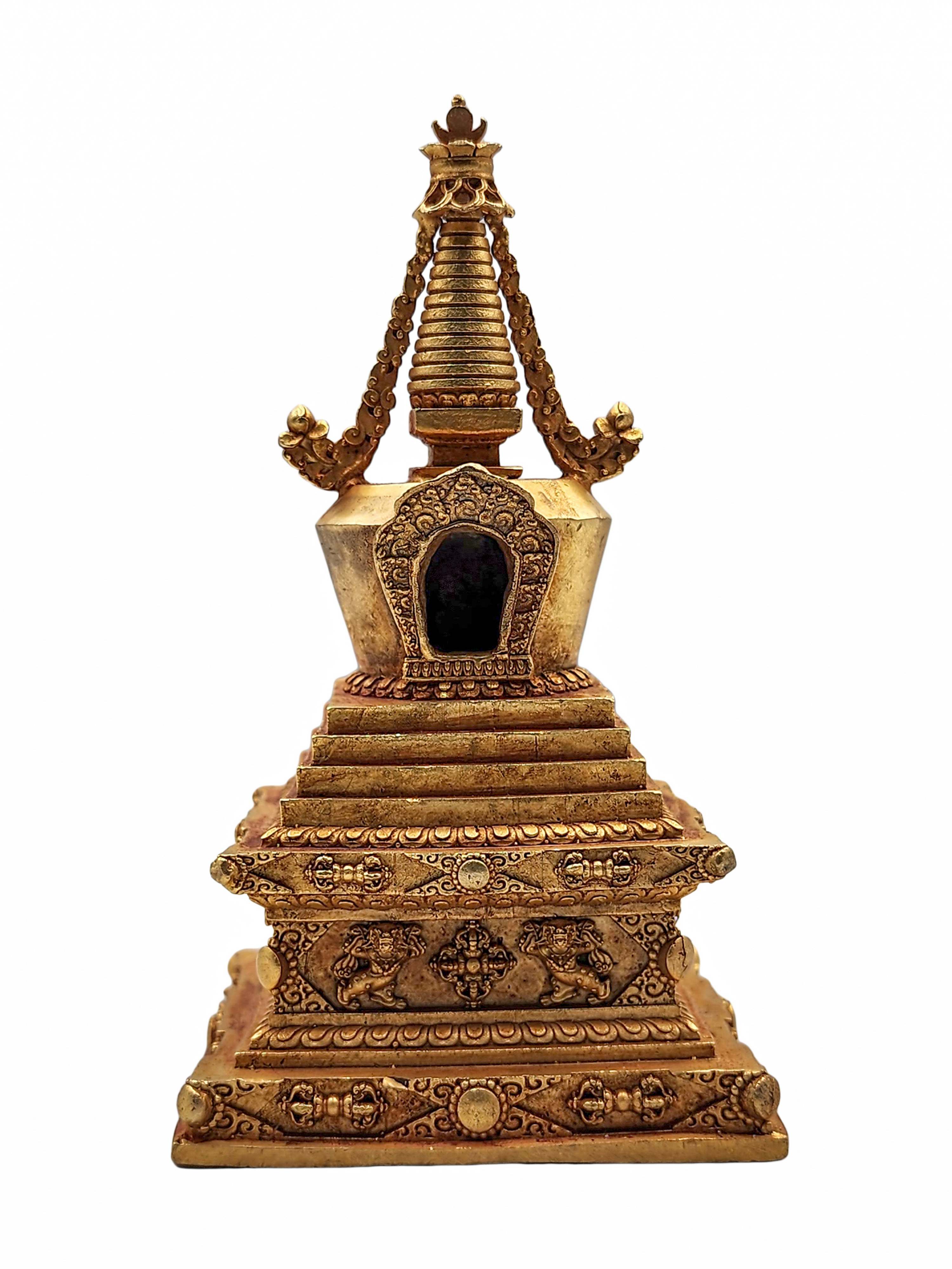 Stupa, Buddhist Statue,
Stupa, Buddhist Statue, 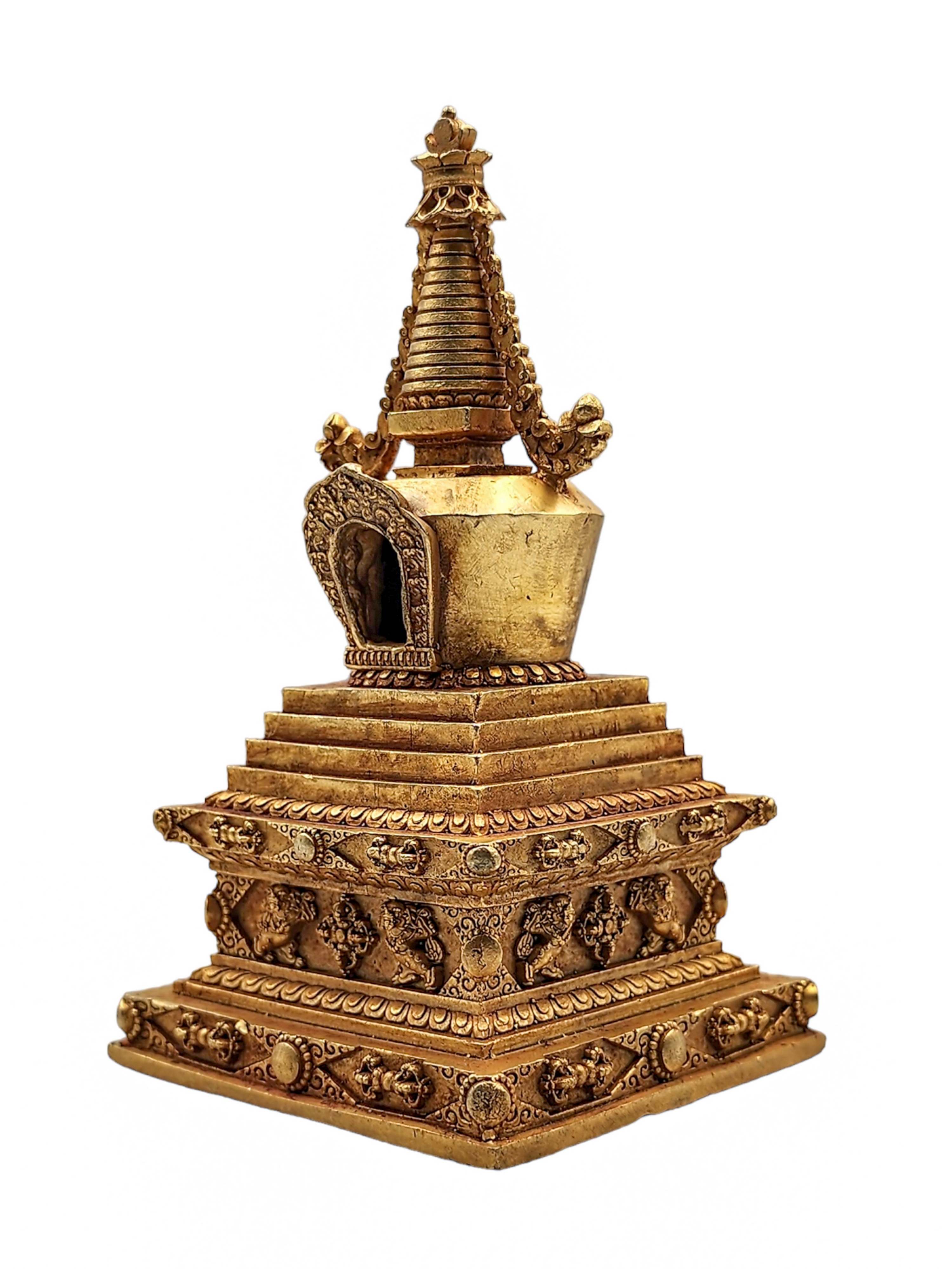 Stupa, Buddhist Statue,
Stupa, Buddhist Statue,  of Simhamukha Yogini, Senge Dongma,
of Simhamukha Yogini, Senge Dongma, 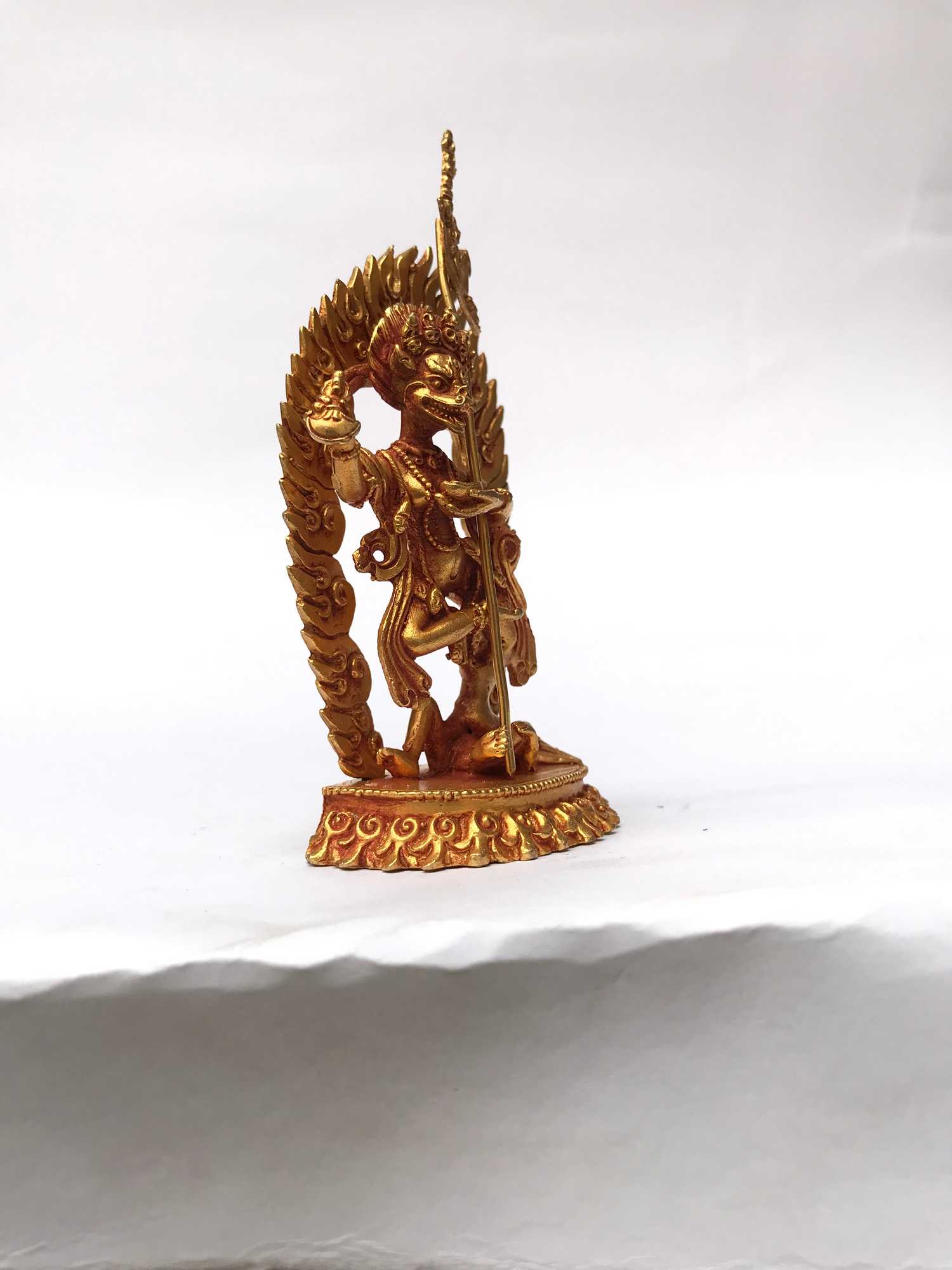 of Simhamukha Yogini, Senge Dongma,
of Simhamukha Yogini, Senge Dongma,  of Green Tara
of Green Tara 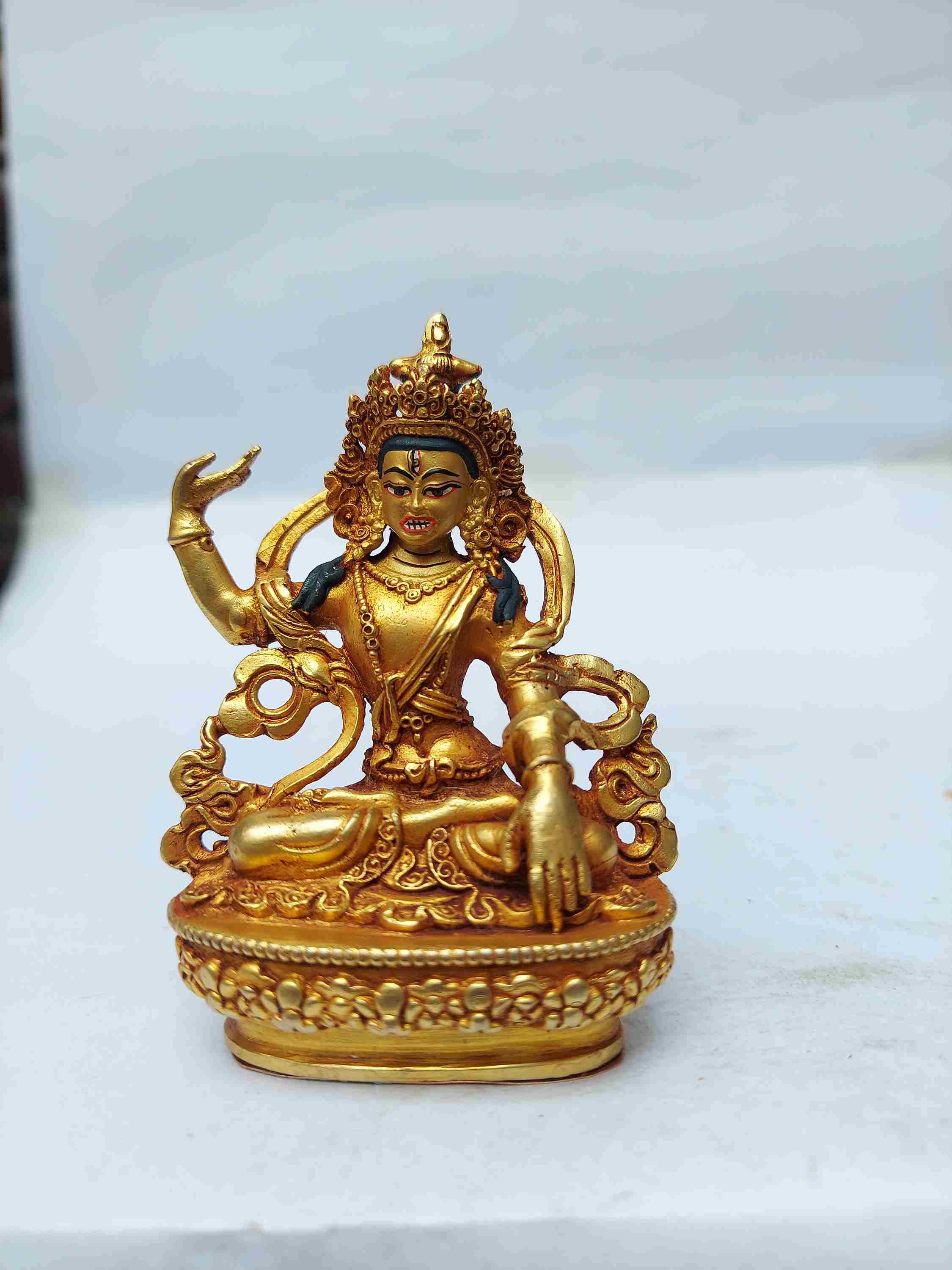 of Green Tara
of Green Tara  of Manjushri,
of Manjushri,  of Manjushri,
of Manjushri,